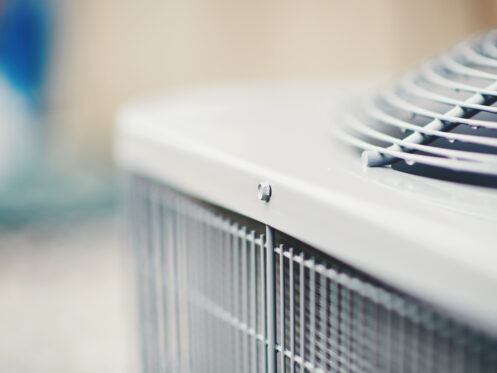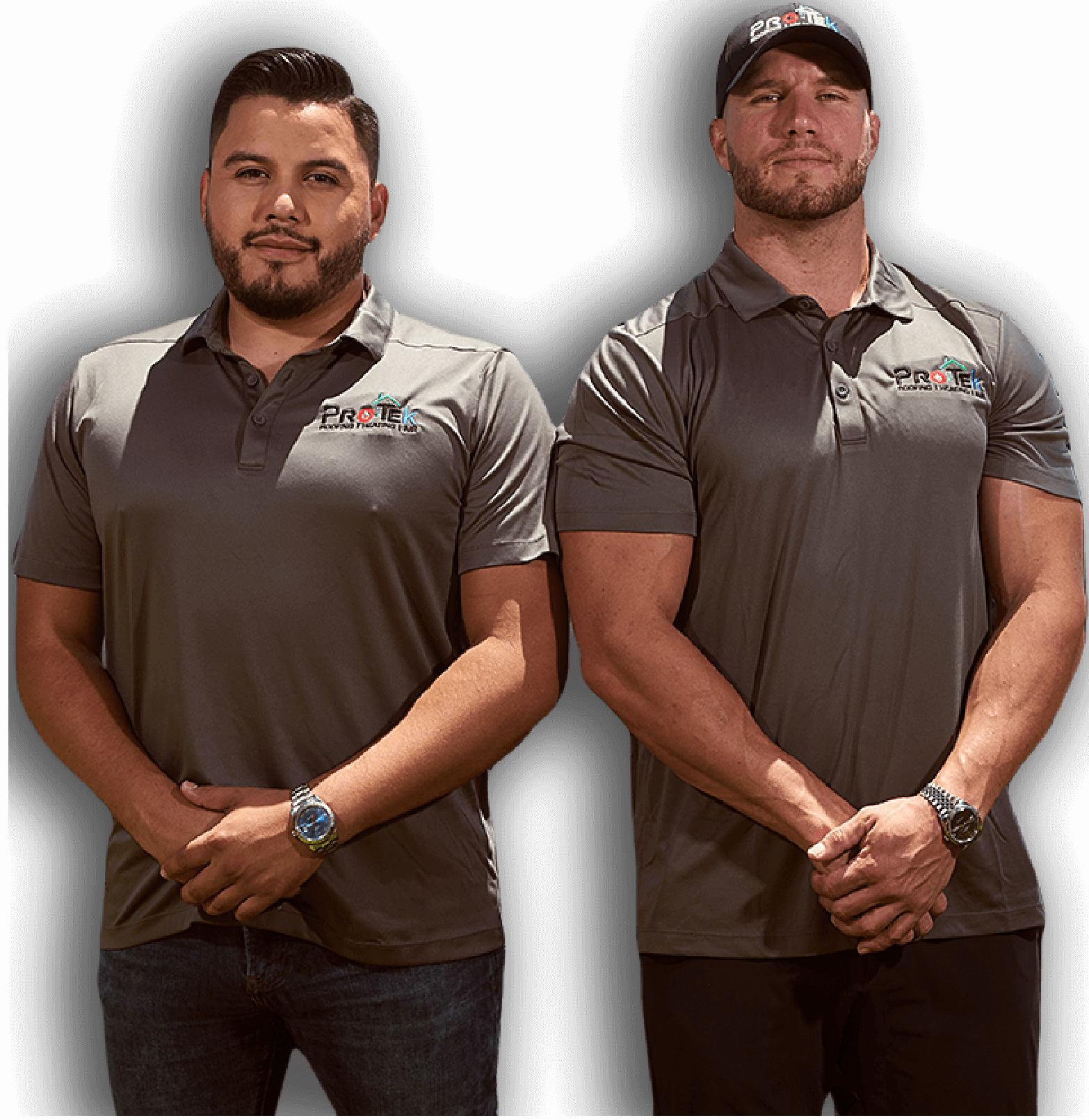You’ve probably seen a few hard-working air conditioners leak water. Simple, window air conditioners leak water quite often. During operation, even central, whole-house cooling systems can emit a fair amount of moisture. In some cases, leaking is little more than an indication of high outdoor humidity. In others, it’s a sign of fast-developing problems. To keep the cooling equipment in your Tampa, FL home working optimally, read on to learn the difference.
Your Air Conditioner and Humidity Regulation
Central air conditioners perform separate functions to regulate indoor climates. They produce and circulate chilled air to keep building interiors at comfortable, moderate temperatures. They also filter indoor air and extract excess humidity.
During the cooling process, warm air is passed over your air conditioner’s evaporator coil. The icy refrigerant within this coil extracts the air’s heat. This heat is released upon reaching the outside condenser unit. When heat is removed from refrigerant, condensation is extracted as well. This moisture is routed down your air conditioner’s condensate drain.
Insufficient AC Maintenance and Condensate Line Clogs
The condensate drain, drain pan and line in an air conditioner are constantly wet. In warm, muggy conditions, all of these features offer the perfect environment for supporting bacteria, algae and other growths. During fall and winter months when your AC is dormant, thick, slimy collections of bacteria and fast-growing algal blooms can proliferate in these areas. In some homes, large amounts of dust, dirt, textile fibers and other airborne particulates prove problematic as well. This is one of many reasons why homeowners are advised against simply turning their air conditioners on as soon as winter ends.
During annual air conditioner maintenance, we inspect and clean condensate drains, drain lines and drain pans. We also remove and treat bacteria and algae. This way, on hot, humid days when air conditioners are extracting large amounts of moisture, the resulting water is efficiently routed away.
If you have a leaking air conditioner, check your condensate drain pan and condensate drain. It may be that the drain is blocked and the condensate pan is overflowing. The best solution is to give us a call and schedule an AC tune-up.
Dirty Evaporator or Condenser Coils
The evaporator and condenser coils in your air conditioner are the central components in heat transfer. Although your AC air filter sieves out the dirt, carpet fibers, pet hair and other debris that enters the system, it doesn’t capture all of these things and it doesn’t filter all of your indoor air. Much of the remaining debris can enter HVAC units and coat their evaporator coils and other components within the indoor air handling unit.
At the exterior of the building, the outdoor condenser unit and all of the components it contains are constantly subjected to windblown particulate matter. This includes the AC condenser coil.
When the evaporator coil is covered in grime, the chilled refrigerant it holds cannot extract heat from the air effectively. This causes icing at the indoor air handler and puts stress on the entire system. When the evaporator coil thaws after you’ve turned your AC off or after it’s shut itself down as a preventative measure, you may notice small amounts of water around the indoor air handling unit as the evaporator coil thaws. If the condenser coil is dirty, condensation removal will suffer and your AC’s condenser could leak both while your air conditioner is on and just after it’s turned off.
Hard-Working Condenser Units and Leaking
Even with functional condensate drain lines and drains, some air conditioners might develop small puddles of water around their outdoor condensers during times of high use. In an exceedingly humid climate like Tampa’s, central AC systems have much to do. Small drips around the condenser while the unit is running are normal. However, if there’s water constantly dripping from the condenser when your AC is off, there may be an underlying problem.
Improper Installation
Several installation mistakes can affect your air conditioner’s performance throughout its lifespan. If you’re unhappy with the work that a former HVAC provider supplied, it’s probably best to have it inspected by another HVAC contractor. Not only can running an air conditioner with an installation-related leak cause your cooling equipment to fail prematurely, but it can also result in significant property damage. Poorly installed HVAC equipment is additionally a safety hazard. Your outside condenser unit could be on an uneven or unstable base or there may be connection issues along the condensate drain line.
Incorrect AC Sizing
Getting the right size air conditioner is of the utmost importance. If an air conditioner is too large for its service area, it will short cycle. If it’s too small, it will run nearly non-stop and still underperform. Both problems can lead to leaking. An undersized AC will leak at its condenser unit as it struggles to keep up with humidity extraction. A large AC might leak at its air handler if sizing issues cause problems like icing over or short cycling.
You Might Have a Refrigerant Leak
Not all fluids leaking from air conditioners are guaranteed to be water. It may be that your AC has a leak along its refrigerant line or in another area. Given that air conditioners are highly pressurized, refrigerant leaks are always progressive issues and serious cause for concern. You might notice a sharp decline in indoor comfort as the air in your living space becomes both wetter and warmer. Continuing to run your AC with ongoing refrigerant loss can eventually result in compressor failure or compressor collapse.
If you can access your indoor air handler, you can determine whether you’re dealing with a water leak or a refrigerant leak by inspecting its evaporator coil. Water will run off of this coil and pool around or beneath it. The refrigerant will settle on the evaporator coil and form small, champagne-like bubbles.
The AC Condensate Drain Is Cracked
The source of your leak may still lie at the AC condensate drain even if you’re diligent about having your cooling equipment professionally serviced each year. In addition to fast-growing bacteria and algal blooms, condensate drains can sustain wear-related damage that causes them to crack. If there’s visible rust or other corrosion around this feature, schedule service right away.
You Have a Dirty Air Filter
Dirty filters are among the most common causes of AC leaks. Although these components are simple and inexpensive, they have a major impact on the performance of HVAC systems. You might have a dirty air filter if your:
- Indoor air quality has declined
- Indoor air feels clammy and oppressive
- AC is short cycling, overheating or failing to turn on
- Your home energy bill is on the rise
You should inspect this component once each month by holding it up to the overhead light. In theory, if light can pass through an AC filter and its built-up debris, air can still move through it too. AC filters that fail to pass this test should be changed right away. In general, you should replace this component every 30 to 90 days.
We offer outstanding heating, cooling, and roofing services. We also provide solar installation, new ductwork, air quality improvements, and insulation. If the air conditioner in your Tampa, FL home is leaking, get in touch with Protek Roofing, Heating, Air & Solar now.




